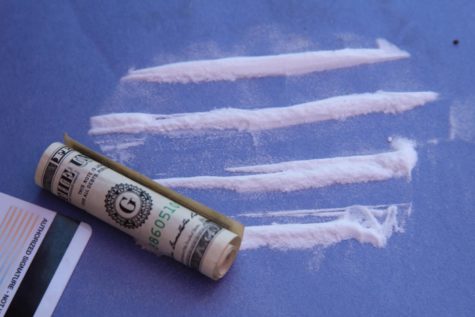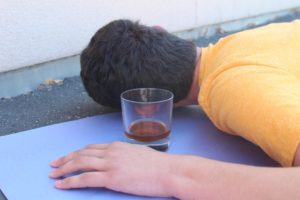A Disease
September 8, 2018
As stated in the Center on Addiction: “Addiction is a complex disease of the brain and body that involves the compulsive use of one or more substances despite serious health and social consequences.” Specific examples include damage to judgment, memory, and learning. It deeply affects relationships with family and friends, which overall disrupts daily life and routines. A disease is defined as a disorder which is concluded by three factors: deviance, dysfunction, and distress. These factors are found among people with disorders, one of them being addiction, and are classified as diseases: addiction is not a choice.
Caused by environmental, biological, and behavioral factors, addiction can come in many forms; the most popular substances in addiction include alcohol, opioids, and nicotine. Although people make the choice of engaging with such substance, they are powerless to how it will affect their brain afterward. These effects eliminate self-control and ability to deny the source. It is why they continue to consume the substance — there may be a choice in the beginning but that choice is immediately removed after the first encounter. It is similar to other illnesses that are labeled as a disease, like obsessive-compulsive disorder, where people experience immoderate thoughts that lead to repetitive actions. These actions are compulsions, and with addiction after taking the substance numerous times: the act of engaging with the substance becomes a compulsion.
Those suffering from addiction are slowly stripped of their fundamental ability to live, or even make the smaller decisions life offers, as they would want. Harvard Medical School explains the inability to coax one’s addicted self out of addiction due to forces far out of their control: a changed brain; “An addicted person’s impaired ability to stop using drugs or alcohol has to do with deficits in the function of the prefrontal cortex — the part of the brain involved in executive [the part of the brain that makes decisions].” The prefrontal cortex manages myriad imperative functions: complex planning, such as allowing oneself to see time-distant rewards as rewards; self-monitoring and balancing intellectual restrictions with libido; personality development and more. The “just say no” method does not pertain to those who are addicted — rather their chemical makeup has been changed, and they must go through rehab.

Photo by Nathan Bingham
Many doctors hope to see their patients, and those using, to find something worth living for, such as making their kids proud due to the pressures of parenting; however, for many, addiction runs in their genes or is shown to them through experience — neither of which anyone has control over.
We are who we are. Substance addiction is much more than a choice; it is rooted in the nature of the beast. Only with rehabilitation, and intensive care, could one overcome addiction.
Learning what normal joy is; appreciating a sunset or a day on the beach for the first time in years; gaining, with time, the skills needed to refuse cravings — when repeated, can lead to healthy, addiction free, habits and a life that someone chooses.


